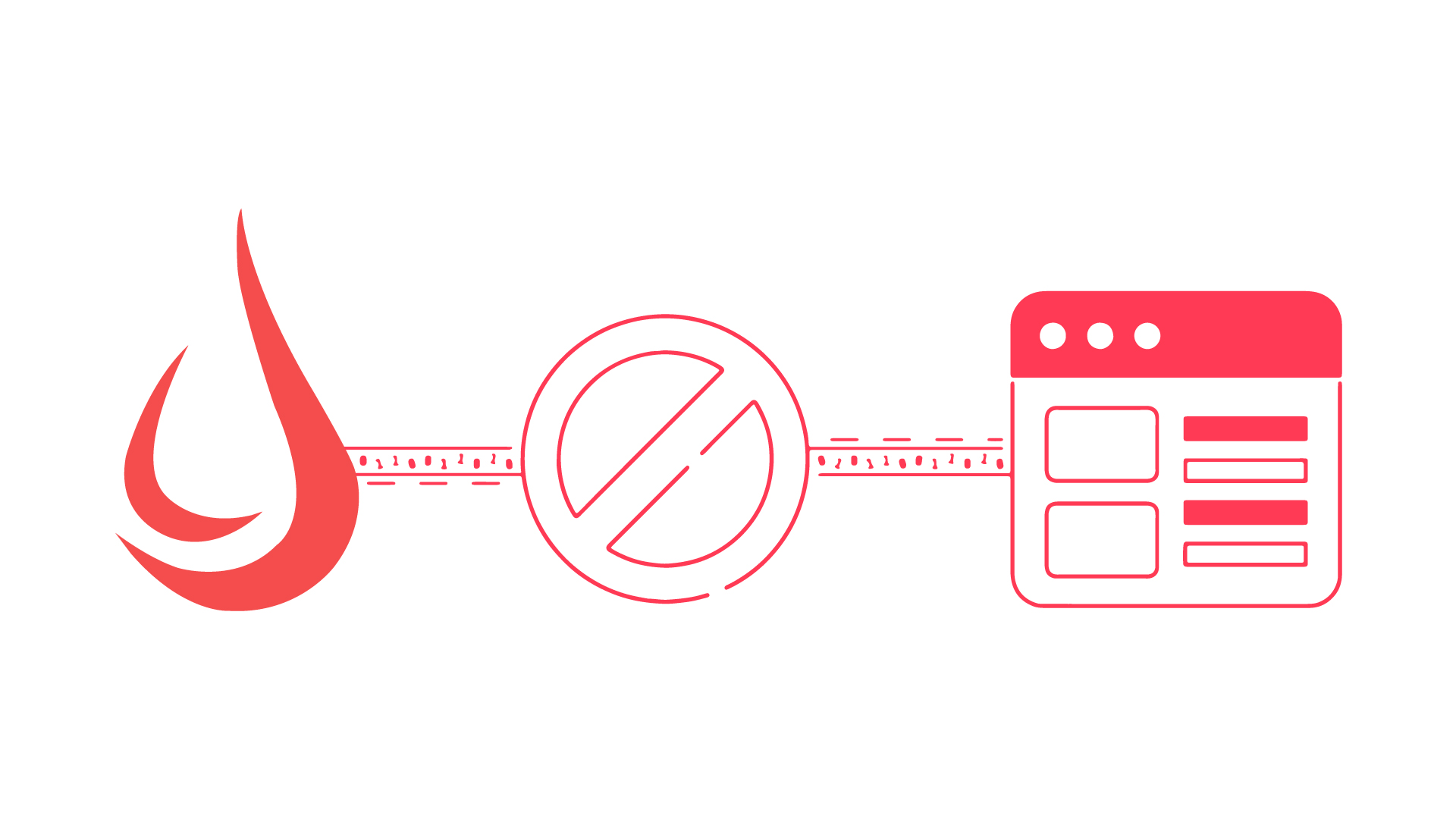
All You Need to Know About IP Blocking
Jan 30, 2023
All You Need to Know About IP Blocking
Have you ever wondered what IP blocking is and how it works? We'll cover the basics of IP blocking, from the different types of blocks and why they're used as effective strategies for protecting yourself from malicious actors. Plus, we'll look at some of the most popular tools used to implement IP blocking and show you how to configure them for maximum protection. Read on to learn more about this important security measure.
What Is An IP Block?

An IP block is a range of IP addresses that have been blocked by a network administrator. IP blocks are used to prevent access to certain websites or online services. When an IP address is blocked, the user will be unable to access the blocked website or service.
In many cases, IP blocks are used to stop spam or malicious activities taking place on the network. They can also be used to limit access to certain websites or services, such as adult content or streaming media.
How to Set Up an IP Block?
Assuming you would like content for a blog post titled "Everything You Need to Know About IP Blocking":
IP blocking is a configuration setting on a network device that denies access to a specific IP address or range of IP addresses. When an IP address is blocked, the device will not respond to any requests made from that IP address.
There are many reasons why you might want to block an IP address. Maybe you're getting too much spam from a certain email address, or maybe someone keeps trying to hack into your website. Whatever the reason, IP blocking is a simple and effective way to stop unwanted traffic.
To block an IP address on your router, look for the "Firewall" or "Security" settings. From there, you should be able to add the IP address (or range of addresses) that you want to block.
Why Do We Use IP Blocks?
We use IP blocks for a variety of reasons. In some cases, we may need to block an IP address that is causing problems on our network. For example, if there is a machine on the network that is sending out spam emails, we may need to block the IP address of that machine to stop the spam from occurring. In other cases, we may need to block an IP address because it is associated with a malicious website. By blocking the IP address of the website, we can prevent users from accessing the site and becoming infected with malware.
IP blocks can also be used to protect our system from distributed denial-of-service (DDoS) attacks, which are attempts to overwhelm a network or server with requests in order to take it down. By blocking the IP address of the attacker's machine, we can prevent them from being able to send their requests and thus protect our system.
Finally, IP blocks can be used to limit access to certain services or websites. For example, a business might block the IP addresses of foreign countries in order to prevent their employees from accessing certain websites that are not allowed.
How to Create a List of Sites to Block?
Assuming you have a list of sites that you want to block, there are a few ways to go about it. The most common way is to use a host file.
A host file is a simple text file that maps hostnames to IP addresses. When your computer attempts to access a hostname, it will check the host's file first. If the hostname is found in the file, the corresponding IP address will be used. Otherwise, your computer will continue its search for the hostname by contacting DNS servers.
To block a website using a host file, you would add an entry mapping the website's hostname to an invalid IP address. For example, if you wanted to block facebook.com, you would add the following line to your host’s file:
127.0.0.1 facebook.com
This would cause any attempt to access facebook.com to be redirected to your local computer (127.0.0.1). Of course, you can also use this method to block multiple websites by mapping each one to 127.0.0
Pros and Cons of Using an IP Block
When it comes to website security, there are a lot of different options out there. One of these options is IP blocking, which can be both a pro and a con depending on your needs.
Pros:
-IP blocking can be an effective way to block malicious traffic from reaching your website.
-It can also be used to block specific countries or regions from accessing your site.
-IP blocking can be implemented relatively easily and does not require expensive hardware or software.
Cons:
-IP blocking is not a perfect solution and can sometimes block legitimate traffic.
-It can also be bypassed relatively easily by those who know how.
-IP blocking is only effective if you have a static IP address. If your IP address changes frequently, it will become more difficult to maintain an effective block.
Overall, IP blocking can be an effective tool for website security when used correctly. However, it’s important to understand its limitations before relying on it too heavily.
How to Bypass IP Blocking?
If you're trying to access a website that's been blocked by your ISP, there are a few ways you can bypass the IP blocking. One is to use a web-based proxy, which will allow you to access the site without revealing your real IP address. Another way is to use a VPN, which will encrypt your traffic and route it through a server in another location, making it appear as if you're accessing the site from that location. Finally, you can try using Tor, which is free software that routes your traffic through multiple servers before reaching its destination, making it very difficult to track your real IP address.
Note: We do not recommend bypassing IP blocking as it is generally done to protect users from malicious websites or content.
Use a VPN
If you want to avoid being IP blocked, one of the best things you can do is use a VPN. A VPN encrypts your traffic and routes it through a server in another location, making it much harder for anyone to track or block your activity.
There are many different VPNs available, so it's important to choose one that's reputable and offers good security. We recommend a fast, reliable, and easy-to-use VPN.
Once you've signed up for a VPN, simply download the app and connect to a server in the country where you want to access the content. For example, if you want to watch Netflix US, connect to a US server. Then visit Netflix and sign in as normal. You'll now be able to stream all the shows and movies that are normally blocked in your country.
The Final Consideration
IP blocking is a process of preventing internet users from accessing specific online content. It usually involves identifying the IP addresses of computers that are trying to access the blocked content and then adding those addresses to a blacklist.
There are several reasons why someone might want to block certain IP addresses from accessing their website or online service. For example, they may be concerned about security threats posed by certain countries or regions, or they may be trying to prevent online piracy or copyright infringement.
Whatever the reason, IP blocking can be an effective way to control who has access to your content. However, according to Rainproxy, it's important to understand how IP blocking works and what its limitations are before using it on your own website or service.




